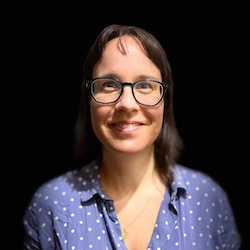This seminar will take place on October 27 at 13:00, online via Zoom (link below)
https://videoconf-colibri.zoom.us/j/92793885759?pwd=SlR3Tmtzb1hncng5WWs1cHlJT2JGZz09
Our seminars are free to attend and open to everyone. Please share with whomever may be interested.

Summary
Biological wastewater treatment is the largest application of biotechnology by volume in the world. It uses large-scale “bioreactors” for various aspects of wastewater treatment and resource recovery, including recovering clean water, nutrients and bio-energy. In this talk, Ana is going to share three dimensions in which she believes there are possible cross-links between the design and optimisation of these technologies and the effective management of the required resources, supply chains, technology combinations, information and overall decision making. She will present three perspectives from micro-scale (microbial resource management) to macro-scale (regional or national markets). This is an exploratory and hopefully interactive discussion to try and find commonalities in process bio-engineering and management.
Speaker's bio
Ana Lanham is an Assistant Professor at DBE-IST and iBB since Sep. 2022 and was a lecturer in Water Science and Technology since Sep. 2015 at the University of Bath, UK. She holds a PhD in Biochemical Engineering from Universidade Nova de Lisboa where she specialised in biological nutrient removal systems for wastewater treatment. Ana Lanham's group focuses on using microbial ecology and environmental biotechnology tools to understand, design and improve biological processes for wastewater treatment and resource recovery in a concept they have called Microbial Sociology for the Circular Economy. In addition, the group also has a more systems perspective around the role of water in the circular economy, focussing on tools for technology assessment and LCA thinking.
